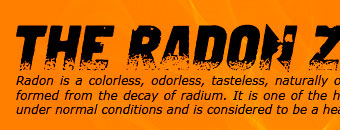 |
 |
 |
||||
|
||||||
| Call: 417-844-0942 | ||||||
|
»Radioactive Materials Transported by Freight Train This page provides an overview on shipping radioactive materials by freight trains and the strict requirements used to prevent a spill or release during an accident. Overview Because we cannot predict transportation accidents, strict packaging requirements govern the shipment of radioactive materials. While the chances of a transportation accident are small, an accident that resulted in a spill could result in an expensive cleanup and/or unnecessary exposure to workers or the public. Strict requirements help ensure against radioactive material spills or releases if there is an accident. Requirements for shipping radioactive materials, such as high-level radioactive waste or spent nuclear fuel, by rail or highway are extremely rigorous. Requirements include specially-designed casks to ensure the integrity of the container under all circumstances, including the forces it would likely experience in a train collision and derailment. Due to the nature radioactive material, special precautions are taken in choosing shipment routes, shipments are tracked either electronically or on paper, and drivers are trained in both general and emergency radiation safety measures. Radioactive materials have been shipped in the United States for more than fifty years. Each year, roughly three million packages containing radioactive material are transported by trucks, trains, boats and barges, and airplanes. The packages may contain products or wastes, including pharmaceuticals, industrial gauges, laboratory materials and low-level, high-level, and transuranic radioactive wastes. |
|
|||||